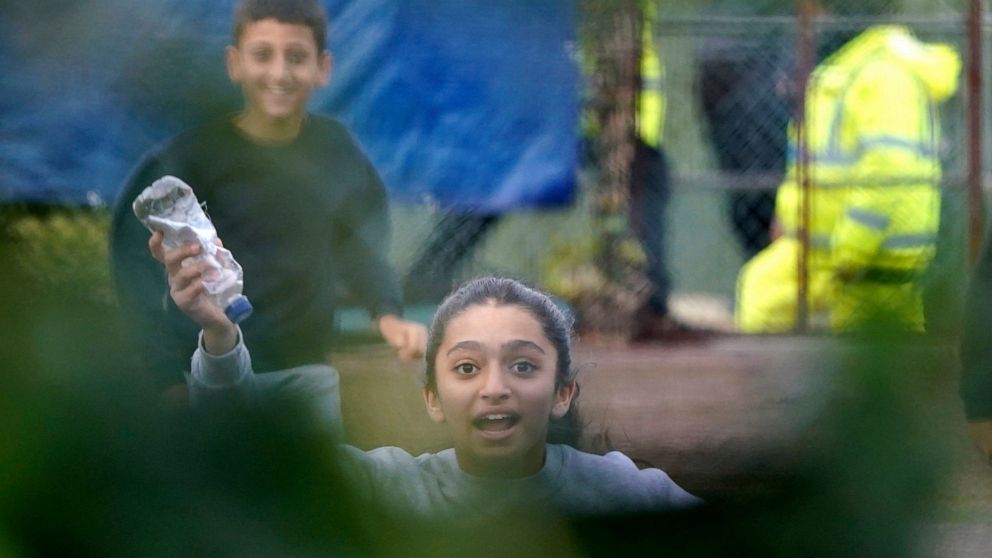LONDON — Behind wire fences in southeast England, children wave their arms and chant “freedom” to grab the attention of people on the other side. A young girl throws a bottle with a message inside. “We need your help. Please help us,” the note reads.
The children are among thousands of people being held in dangerously overcrowded conditions at a closed airport serving as a processing center for migrants who recently arrived on British shores after crossing the English Channel in small boats. The situation there has reignited a heated debate about the Conservative U.K. government’s treatment of asylum-seekers.
Located at the site of a former British air force base that had a short life as the civilian Manston Airport, the center in Kent was designed as a short-term processing facility housing about 1,600 newcomers. Up to 4,000 were staying there at one point this week, with some reportedly detained unlawfully for a month or more.
Independent government inspectors said they saw families sleeping on floors in prison-like conditions that presented fire and health hazards. The inspectors warned of the risk of outbreaks after cases of scabies, diphtheria and other conditions were reported.
“Welcome to the U.K,” read a headline in the Metro newspaper, accompanied by a close-up photo of young children gazing out from behind metal fences.
Facing pressure over the situation, U.K. Home Secretary Suella Braverman defended the government’s policies and described the increasing number of migrants arriving via the English Channel as “ an invasion on our southern coast.” Her comment drew widespread condemnation.
The conditions at the center in the village of Manston has put a spotlight on wider problems in Britain’s asylum system, which is struggling to cope with a record number of small boat crossings at a time when border officials are trying to clear a massive backlog of refugee applications.
“We’ve got this kind of perfect storm of more people coming — which the government was warned about — and added to the mix we have this huge waiting list of around 100,000 individuals who have sought asylum,” said Jonathan Ellis, the policy and public affairs lead at Britain’s Refugee Council. “There’s a lack of political will, a lack of political focus, and therefore, (a lack of) the associated resources to really tackle this issue.”
Around 40,000 people from countries that include Iran, Afghanistan, Iraq and…
Click Here to Read the Full Original Article at ABC News: International…

